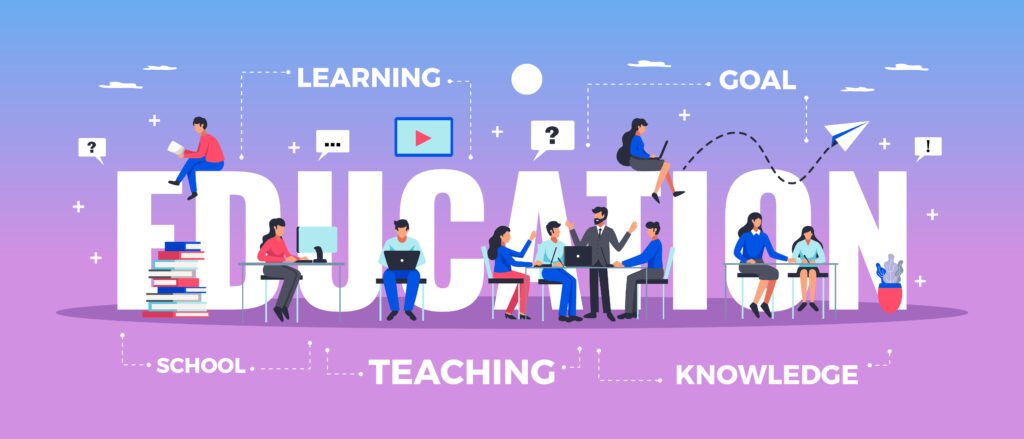In today’s fast-paced world, where technology reigns supreme, the quest for effective educational tools has led to the rise of Learning Management Systems (LMS). These digital platforms offer a plethora of benefits, revolutionizing the way we approach teaching and learning.
But how do they fare when it comes to supporting special needs education?
Let’s delve into the realm of LMS and explore how they cater to the diverse needs of students with special requirements.
Navigating the Landscape of Learning Management Software
Before we dive into the specifics, let’s take a moment to understand what LMS entails. Learning Management Software, often referred to as LMS, is a digital platform designed to streamline the administration, documentation, tracking, reporting, and delivery of educational courses or training programs. These systems have gained immense popularity across various sectors, ranging from corporate training to academic institutions.
The Best LMS Software for Special Needs Education
When it comes to special needs education, not all LMS are created equal. Some excel in catering to the unique requirements of students with disabilities, while others may fall short. Therefore, it’s essential to choose the right platform that aligns with the goals and objectives of special education programs.

Top Learning Management Systems: A Closer Look
- Accessibility Features: One of the primary considerations when selecting an LMS for special needs education is its accessibility features. The best LMS software offers a range of tools and functionalities designed to accommodate diverse learning styles and needs. From screen readers to customizable fonts and colors, these features ensure that students with disabilities can access and navigate the platform with ease.
- Multimedia Integration: Visual and auditory aids play a crucial role in enhancing the learning experience for students with special needs. The top learning management systems prioritize multimedia integration, allowing educators to incorporate videos, audio recordings, and interactive simulations into their lessons. This not only makes the content more engaging but also caters to the varied sensory preferences of students with disabilities.
- Personalized Learning Paths: Every student is unique, and their educational journey should reflect that diversity. The best LMS software empowers educators to create personalized learning paths tailored to the individual needs and abilities of each student. Whether it’s adjusting the pacing of lessons or providing additional support materials, these customizable features ensure that every student receives the attention and resources they require to succeed.
Autism Solutions: Empowering Students Through Technology
Autism spectrum disorder (ASD) presents a unique set of challenges in the realm of education. However, with the right tools and support systems in place, students with autism can thrive academically and socially.
LMS offer a myriad of features that cater to the specific needs of students on the autism spectrum, making them invaluable resources for educators and caregivers alike.
- Visual Schedules and Timers: Structure and routine are essential for many individuals with autism. LMS can help create visual schedules and timers to assist students in managing their time and staying organized throughout the day. By breaking tasks down into manageable chunks and providing clear visual cues, these tools promote independence and executive functioning skills.
- Social Skills Development: Interpersonal skills are a vital aspect of academic and social success. LMS can facilitate social skills development by incorporating collaborative activities, peer interactions, and communication tools into the learning environment. Through group projects, discussion forums, and virtual classrooms, students with autism can practice socializing in a safe and supportive setting.
- Sensory-Friendly Design: Sensory sensitivities are common among individuals with autism, making the learning environment a potential source of stress and discomfort. LMS with sensory-friendly design features, such as adjustable background noise levels and color schemes, help create a more inclusive and accommodating space for students with sensory processing differences.
Daycare Management Software: Streamlining Operations for Special Needs Centers
In addition to academic settings, LMS also find applications in daycare and childcare centers catering to children with special needs. Daycare management software, equipped with LMS functionalities, offers a comprehensive solution for managing administrative tasks, tracking student progress, and communicating with parents and caregivers.
- Individualized Care Plans: Each child in a special needs daycare center has unique requirements and goals. Daycare management software with LMS capabilities allows caregivers to create and implement individualized care plans tailored to the specific needs and preferences of each child. Whether it’s tracking dietary restrictions, monitoring medication schedules, or documenting behavioral interventions, these digital platforms streamline the process of delivering personalized care.
- Parent Engagement and Communication: Effective communication between daycare staff and parents is paramount in ensuring the holistic development and well-being of children with special needs. Daycare management software enables real-time communication through messaging features, progress reports, and event notifications. By keeping parents informed and involved in their child’s daily activities and milestones, these platforms foster a collaborative partnership between home and daycare.
- Staff Training and Development: Continuous professional development is essential for daycare staff to provide high-quality care and support to children with special needs. LMS integrated into daycare management software offers training modules, resources, and certification programs tailored to the unique requirements of special education settings. From understanding diverse learning needs to implementing evidence-based practices, these training initiatives empower staff members to enhance their knowledge and skills.
Conclusion
In conclusion, Learning Management Systems play a pivotal role in supporting special needs education across various settings, including academic institutions, autism centers, daycare facilities, and childcare centers.
By harnessing the power of technology, educators and caregivers can create inclusive and empowering learning environments that cater to the diverse needs of students with disabilities.
With its robust features and customizable functionalities, EDUMA stands out as a top choice for institutions seeking to enhance their special education programs and empower students to reach their full potential.
